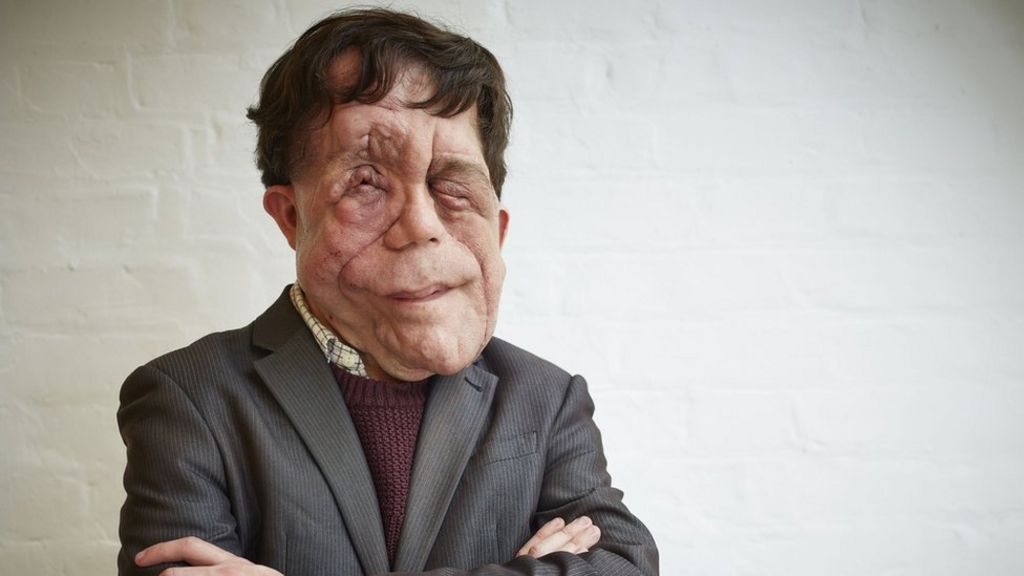Let’s face it, the internet loves drama—and sometimes that drama takes some pretty dark turns. The phrase "most ugly person in the world" has been floating around online for years, sparking debates, controversies, and even hurt feelings. But what’s the real story behind this label? Is it just another clickbait headline or is there more to it than meets the eye? Today, we’re diving deep into this topic to uncover the truth.
This isn’t just about looks; it’s about humanity, perception, and how society treats those who don’t fit the conventional mold. The concept of beauty—and its opposite—is subjective, and yet, it’s often used as a weapon. In this article, we’ll explore the history, the people involved, and the impact of such labels on real lives.
So, grab your favorite drink, get comfy, and let’s talk about something that might make you rethink the way you view both beauty and "ugliness." It’s time to dig deeper and understand the human side of this controversial topic.
Read also:Alix Lapri Net Worth The Untold Story Of A Rising Star
What Does "Most Ugly Person in the World" Really Mean?
When we hear the term "most ugly person in the world," it sounds like a cruel joke, right? But here’s the thing: it’s not just a joke—it’s a reflection of how society can sometimes be incredibly harsh. The idea of labeling someone as the "ugliest" is rooted in our obsession with physical appearance, a standard that’s been drilled into us by media, culture, and history.
In this section, we’ll break down what this label truly means and why it matters. Spoiler alert: it’s not just about looks—it’s about the way we treat others based on superficial standards.
How Did This Label Come About?
The origins of this label are murky at best. Over the years, different names and faces have been attached to it, often without any factual basis. Social media and tabloids love to sensationalize stories, and the "most ugly person in the world" narrative is no exception. It’s a way to grab attention, spark outrage, and, unfortunately, hurt real people.
But where does it all begin? Let’s take a look at some of the most infamous cases that have fueled this debate:
- Lois Williams: A British woman whose photo went viral in the early 2000s.
- Priscilla Presley: Yes, even celebrities haven’t been spared from this cruel label.
- Modern-day cases: The rise of social media has only amplified this phenomenon, with countless individuals being targeted online.
Biography: The Faces Behind the Label
Before we dive deeper, let’s take a moment to humanize the people behind this label. These aren’t just faces on a screen—they’re real people with real stories. Below is a brief overview of some of the individuals who have been labeled as the "most ugly person in the world."
| Name | Age | Country | Occupation |
|---|---|---|---|
| Lois Williams | 67 (at the time) | United Kingdom | Housewife |
| Priscilla Presley | 77 (as of 2023) | United States | Actress, Businesswoman |
These individuals have been thrust into the spotlight for all the wrong reasons, and their stories highlight the dangers of labeling people based on appearance.
Read also:Boss Babe Quotes Empowering Your Inner Warrior With Words Of Strength
Why Do We Focus on Looks?
Let’s be real: humans are naturally drawn to beauty. But why do we obsess over it so much? The answer lies in a mix of biology, psychology, and societal pressures. From an evolutionary standpoint, humans are wired to seek out attractive traits as a sign of health and fertility. But in today’s world, that instinct has been taken to extremes.
Here’s a quick rundown of why looks matter so much:
- Social Media Influence: Platforms like Instagram and TikTok have turned beauty into a commodity.
- Cultural Norms: Different cultures have varying standards of beauty, but the global influence of Western ideals has created a universal benchmark.
- Psychological Impact: Studies show that people who are considered attractive often receive better treatment, from job interviews to social interactions.
Breaking Stereotypes: Beyond Physical Appearance
It’s time to challenge the notion that beauty—or ugliness—is purely physical. In this section, we’ll explore the different facets of human attractiveness and why it’s time to rethink our standards.
Think about it: how often do we judge someone solely based on their looks? The truth is, beauty goes beyond skin-deep. It’s about personality, kindness, and the impact someone has on the world around them. Let’s break down some of the stereotypes associated with the "most ugly person in the world" label:
Personality Over Looks
Some of the most beloved individuals in history weren’t conventionally attractive, but their personalities shone through. Think about Albert Einstein, Mother Teresa, or even Morgan Freeman. Their charm and kindness made them unforgettable, proving that beauty isn’t just skin-deep.
The Psychological Impact of Labels
Labeling someone as the "most ugly person in the world" doesn’t just hurt feelings—it can have long-lasting psychological effects. Studies show that negative body image can lead to depression, anxiety, and even eating disorders. In this section, we’ll delve into the science behind how labels affect mental health.
Here’s what the experts have to say:
- Increased Risk of Depression: People who are labeled as "ugly" are more likely to experience feelings of worthlessness and isolation.
- Self-Esteem Issues: Constant criticism can erode confidence and make it hard for individuals to see their own worth.
- Social Stigma: Being labeled as "ugly" can lead to social exclusion and discrimination in various aspects of life.
How Can We Combat These Effects?
The solution lies in education and empathy. By teaching people to look beyond physical appearance, we can create a more inclusive and compassionate society. Here are some actionable steps:
- Promote Positive Body Image: Encourage self-love and acceptance in all forms.
- Educate on Diversity: Highlight the beauty of different cultures, backgrounds, and appearances.
- Speak Up Against Bullying: Stand up for those who are being unfairly labeled and create a safe space for everyone.
Media’s Role in Shaping Perceptions
The media plays a significant role in shaping our perceptions of beauty and ugliness. From magazines to movies, the images we consume influence the way we view ourselves and others. In this section, we’ll examine how the media contributes to the "most ugly person in the world" narrative.
Here’s the thing: the media often thrives on controversy. Sensational headlines and provocative images get clicks, shares, and engagement. But at what cost? Let’s take a closer look at how the media perpetuates harmful stereotypes:
Case Study: The Rise of Clickbait
Clickbait headlines like "The Ugliest Person in the World Revealed!" are designed to grab attention, but they often do more harm than good. By sensationalizing stories, the media can perpetuate harmful stereotypes and reinforce negative perceptions of certain individuals.
Changing the Narrative: A Call to Action
It’s time to change the way we talk about beauty and ugliness. Instead of focusing on physical appearance, let’s celebrate the diversity of human experience. In this section, we’ll explore ways to shift the conversation and create a more positive narrative.
Here’s what you can do:
- Challenge Negative Stereotypes: Speak up when you see harmful labels being used.
- Support Diversity: Amplify voices that celebrate all forms of beauty.
- Practice Empathy: Remember that everyone has their own struggles and insecurities.
Why This Matters
This isn’t just about one person or one label—it’s about creating a world where everyone feels valued and respected. By changing the narrative, we can make a real difference in the lives of those who have been unfairly labeled.
Conclusion: Redefining Beauty
As we wrap up this article, let’s take a moment to reflect on what we’ve learned. The concept of the "most ugly person in the world" is more than just a label—it’s a reflection of our society’s obsession with physical appearance. But it’s also an opportunity to rethink our standards and create a more inclusive world.
Here’s a quick recap of the key points:
- The label "most ugly person in the world" is rooted in societal pressures and media influence.
- Physical appearance is just one aspect of beauty; personality and kindness matter just as much.
- Negative labels can have serious psychological effects, but education and empathy can help combat these issues.
So, what’s next? It’s up to all of us to change the conversation and celebrate the diversity of human experience. Leave a comment below and share your thoughts on this topic. Together, we can make a difference.
Table of Contents
- Discovering the Truth Behind the Most Ugly Person in the World
- What Does "Most Ugly Person in the World" Really Mean?
- How Did This Label Come About?
- Biography: The Faces Behind the Label
- Why Do We Focus on Looks?
- Breaking Stereotypes: Beyond Physical Appearance
- The Psychological Impact of Labels
- Media’s Role in Shaping Perceptions
- Changing the Narrative: A Call to Action
- Conclusion: Redefining Beauty


